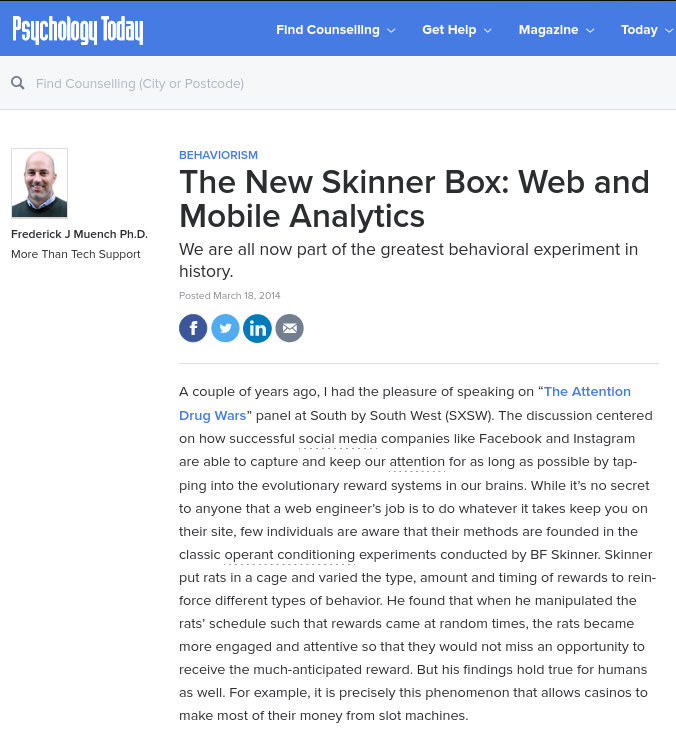Communicating Outside of Skinnerboxes and Social Control Media
Tackling collective isolation and miscommunication (or communications being controlled by middlemen)
HAVING just caught up with IRC (next year will be our 18th year with IRC) and censorious social control media (which Techrights never participated in; it was a great decision and Pieter Hintjens explained what Twitter had become about a decade ago), let's examine the mental effect on people. It's not about children; adults too are negatively affected, based on research. There's no positive effect - no more than gambling or smoking have positive effects (people may say "stress relief", but the negatives by far outweigh any positives).
An associate has bought up "the isolation cultivated by social control media [which] is actively exploited against the population in several ways by several groups" (in the case of Twitter, misogynists; in TikTok, BRICS stand to benefit). I recently remarked on dining tables where people play with their skinnerboxes (computers shaped like a "phone") instead of talking to other people, including family members. Apparently a real dialogue with a real person doesn't get "scores" with something such as "likes", so why bother? It should be noted that IRC copycats (such as proprietary Slack or even Matrix) added stuff like that for "addiction" or rather time-wasting. Instead of focusing on words people start paying attention to "thumbs up", emojis, and various other distractions. This lessens the ability to communicate properly, enhance reading comprehension, and deal with long texts.
Going "out there" and meeting people (not through middlemen like Zuckerberg and Musk) is essential for a sense of reality. There are some things people simply won't say online or would get censored/banned for saying, not because they're abominable but because "the masters" try to control (or "tame") the population. Social control media is a facilitator of that. Social control media is a biased filter rather than a functional communication tool. █

